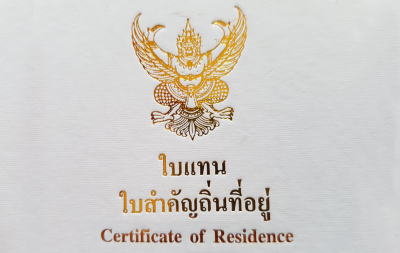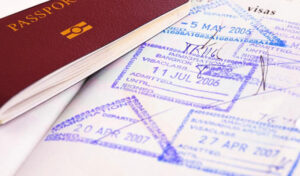Thailand Permanent Residency Visa is a pathway for long-term foreign residents who want to establish permanent roots without needing to renew visas frequently. The PR Visa is issued annually, with applications typically open toward the end of each year. Permanent Residency in Thailand offers several benefits, such as legal residency without re-entry permits, access to mortgage opportunities, and eligibility for a work permit without a visa.
1. Eligibility Criteria for Thailand Permanent Residency
Applicants must meet specific criteria to qualify for Thai permanent residency. Categories under which foreigners can apply include:
- Investment: Foreigners investing a minimum of THB 10 million in Thai government bonds, Thai company stock, or real estate qualify under this category.
- Employment: Applicants who have held a Non-Immigrant Visa and worked in Thailand for at least three consecutive years with the same employer can apply.
- Expertise: Highly skilled professionals or specialists may apply if their work benefits Thailand’s development or economy.
- Family: Foreigners married to Thai citizens or permanent residents, or who are parents or dependents of Thai citizens, can qualify under family categories.
- Humanitarian: This category also supports dependent children or parents of Thai citizens or PR holders.
In addition to meeting one of these criteria, applicants must show proof of financial stability, a valid work permit (if applying under employment), and clear criminal and health records.
2. Application Process for Permanent Residency
The PR application process is extensive, involving multiple steps and documentation:
a) Preparation and Documentation
Applicants should prepare essential documents, such as:
- Passport and valid visa copies
- Work permit copies (if applicable)
- Proof of income and financial status, including tax returns
- Thai language proficiency certification (basic conversational skills)
Documents must be translated into Thai and certified by relevant authorities, especially if issued outside Thailand.
b) Submission to the Immigration Office
Applications are submitted to the Immigration Bureau in Bangkok during the annual application period. A fee of THB 7,600 applies upon submission, with an additional THB 191,400 (or THB 95,700 for spouses of Thai citizens) payable upon approval.
c) Interview and Thai Language Test
After submission, applicants undergo an interview in Thai, where basic conversational skills are assessed. This is a key requirement, especially for those applying under employment or investment categories.
d) Approval and Issuance
If approved, applicants receive a Certificate of Residence. The process generally takes six to twelve months, and approvals are contingent upon the applicant meeting all legal requirements.
3. Benefits of Thai Permanent Residency
Holding Thai permanent residency confers various advantages:
- No Visa Renewal Required: PR holders do not need to renew a visa to stay in Thailand.
- Re-Entry Permits: PR holders can freely enter and exit Thailand without requiring re-entry permits.
- Mortgage Opportunities: PR holders are eligible for mortgages through Thai banks, offering opportunities to invest in property.
- Employment and Business: PR holders can apply for a work permit without a visa and register themselves as company directors in Thailand.
- Pathway to Citizenship: After holding PR status for 10 years, PR holders can apply for Thai citizenship, provided they meet additional requirements.
4. Limitations and Considerations
Despite its benefits, permanent residency in Thailand has some limitations:
- Annual Quota: Each country has a set quota of PR visas issued per year, making it a competitive process.
- No Right to Vote: PR status does not grant voting rights in Thailand.
- Ineligibility for Military Service Exemption: Male children of PR holders may still be subject to Thai military service requirements.
- Complexity of Application: The application requires extensive documentation, a Thai language interview, and processing time, which can be demanding for some applicants.
5. Renewal and Maintaining PR Status
Once granted, Thai permanent residency does not need renewal, but PR holders must report their address to immigration annually and obtain a re-entry permit for any extended travel. Failing to do so can lead to penalties or loss of PR status.
Conclusion
Thailand’s Permanent Residency Visa offers stability for foreigners looking to live, work, and invest long-term. By understanding the categories, requirements, and application process, applicants can navigate this pathway with confidence, reaping the benefits of permanent residency in Thailand’s thriving economy.










